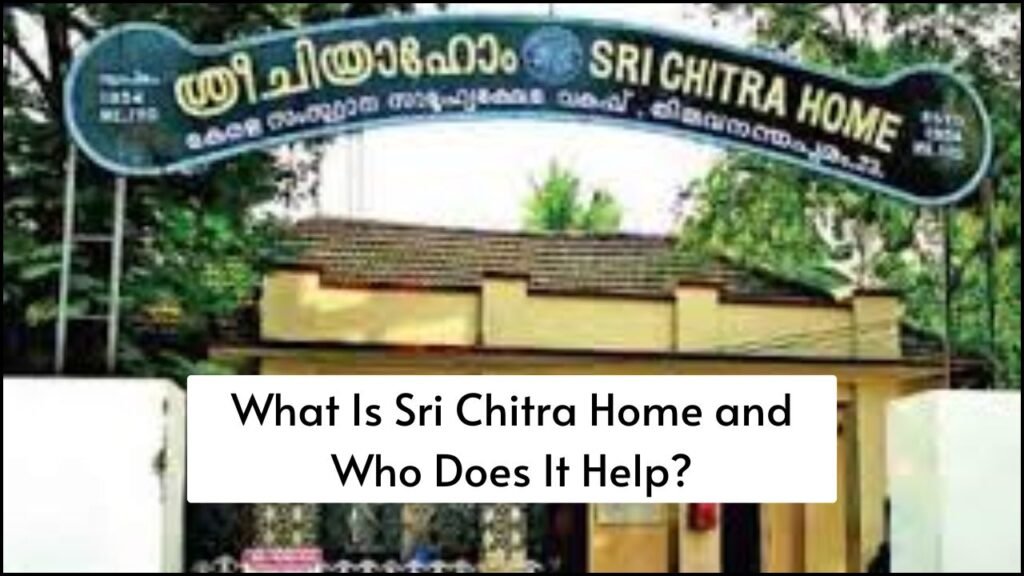
Sri Chitra Home is a unique institution located in Kerala, India. It stands as a symbol of compassion and service. This home provides care, protection, and support to women who are alone, helpless, or in distress. Unlike generic shelters, Sri Chitra Home operates with a mission of emotional rehabilitation and societal reintegration. Its services target specific groups who have been left behind by society. A calm environment, respectful treatment, and continuous efforts towards self-sufficiency make Sri Chitra Home a place of hope.
Purpose of Sri Chitra Home
- Shelter: A safe place for women with no family support or a home.
- Rehabilitation: Emotional and mental healing for those who have faced abuse or trauma.
- Empowerment: Skill development and training programs to make women financially independent.
- Legal Support: Assistance with legal issues, including domestic violence and inheritance claims.
- Health Care: Regular check-ups, medicines, and access to government hospital services.
People Helped by Sri Chitra Home
Sri Chitra Home mainly supports:
- Destitute women: Those who have been abandoned by families or spouses.
- Women with mental health issues: Those who are stable but need continued care and supervision.
- Elderly women: Those who are neglected or have no one to look after them.
- Victims of abuse: Women who have suffered domestic violence or exploitation.
- Orphaned girls: Young girls without parental care are also accommodated and educated.
Admission Criteria
Eligibility is based on the following conditions:
| Category | Details |
|---|---|
| Age | Women and girls above the age of 16. |
| Condition | Must be in need of shelter, care, or rehabilitation. |
| Referral | Must be referred by the Police, NGOs, Courts, or Government departments. |
| Consent | Voluntary admission unless the court orders otherwise. |
| Health Status | Should be free from infectious diseases; basic mental stability required. |
Facilities Provided
| Facility | Details |
|---|---|
| Accommodation | Shared dormitories with beds, fans, and storage space. |
| Food | Nutritious meals are served three times a day. |
| Clothing | Regular provision of basic clothing and hygiene kits. |
| Medical Aid | Routine medical checks and access to government hospital care. |
| Counseling Services | Trained social workers and psychologists available for therapy. |
| Recreational Activities | TV, newspapers, games, gardening, and cultural programs. |
| Security | 24-hour security and CCTV surveillance. |
Skill Development and Training
Women are trained in:
- Tailoring and embroidery: To help them earn through stitching orders.
- Candle making: Training in crafting candles for festivals and markets.
- Handicrafts: Creation of eco-friendly products like baskets and mats.
- Computer literacy: Basic digital training for younger residents.
- Cooking and catering: Skill enhancement for those interested in food services.
Staff and Administration
| Role | Responsibilities |
|---|---|
| Superintendent | Oversees daily operations and coordinates with the government. |
| Social Workers | Handle case histories, counseling, and reintegration planning. |
| Caregivers | Ensure hygiene, discipline, and comfort of the residents. |
| Medical Staff | Monitor health and arrange treatments as needed. |
| Vocational Trainers | Provide skill-based training to build confidence and job readiness. |
Rehabilitation and Reintegration
- Family Reunification: Attempts are made to trace families and reunite women wherever possible.
- Legal Help: Lawyers assist women with family disputes, property claims, or harassment cases.
- Job Placement: Women who are fit and skilled are placed in small jobs or encouraged to start small businesses.
- Follow-up Support: Regular visits or calls are made after the women leave to ensure stability.
Support from the Government and NGOs
| Support Provider | Nature of Support |
|---|---|
| Kerala Social Justice Department | Operational and financial support for the institution. |
| District Legal Services Authority | Legal counseling and free legal aid services. |
| Local NGOs | Supply clothing, study materials, and sponsor special activities. |
| Volunteers | Conduct classes, workshops, and recreational events for residents. |
Daily Routine at Sri Chitra Home
| Time | Activity |
|---|---|
| 6:00 AM | Wake-up and morning prayers |
| 7:00 AM | Breakfast |
| 9:00 AM | Skill training or counseling sessions |
| 12:30 PM | Lunch |
| 2:00 PM | Rest or medical appointments |
| 4:00 PM | Recreation or gardening |
| 6:30 PM | Dinner |
| 8:00 PM | Group discussions or storytelling |
| 9:00 PM | Lights off |
Unique Aspects of Sri Chitra Home
- Non-judgmental environment: Women are treated with respect regardless of their past.
- Long-term stay is possible: Unlike many shelters, residents can stay longer if necessary.
- Individualized care plans: Each woman gets a plan based on her history, needs, and goals.
- Cultural integration: Traditional festivals are celebrated to keep residents connected to their heritage.
- Education for younger girls: In-house tutors and external school enrollments are arranged.
Challenges Faced
- Emotional trauma: Many women suffer from deep psychological wounds that need long-term support.
- Social stigma: Reintegration becomes tough due to negative public perception.
- Lack of family support: Most women are abandoned and face loneliness.
- Limited job options: Older or less-educated women struggle to find employment.
- Funding gaps: Despite government aid, occasional shortages of resources occur.
Success Stories
- Reunited with family: Some women have reconnected with family members after years of separation.
- Entrepreneurship: Women trained in tailoring have started small tailoring units.
- Marriage and stability: A few residents have married and built new lives through arranged support.
- Education continuation: Young girls have gone on to complete higher studies with NGO help.
In Summary
Sri Chitra Home plays a vital role in the lives of women who have no one else to depend on. With structured care, emotional support, and skill development, the institution creates a pathway for these women to live with dignity and hope. Society needs more such initiatives that offer second chances and real support to the most vulnerable sections of the population.









